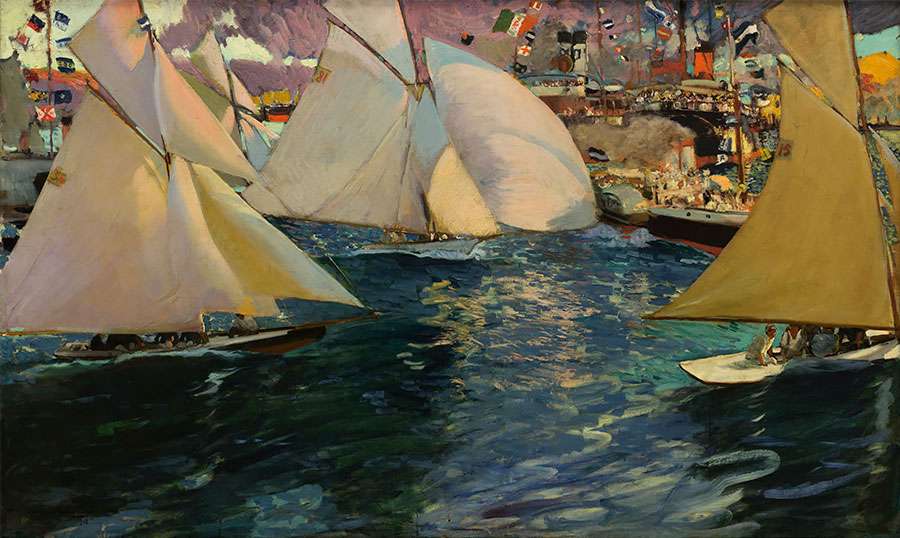From February 27 to August 10, fifteen Cuban actresses and actors who live and work in Cuba and Spain give voice to a group of sonnets inspired by fourteen paintings by the Spanish painter Joaquín Sorolla (1863-1923), belonging to the collection of the National Museum of Fine Arts in Havana.
Sorolla in voices of Cuba is the title of the project created and directed by the theatrologist and playwright Abel González Melo that pays homage to the famous Valencian painter on the 160th anniversary of his birth and the centenary of his death.
González Melo explains on his website that Sorolla’s paintings exhibited in the Spanish painting hall of Fine Arts could not but inspire sonnets, “that classic stanza of fourteen hendecasyllabic verses that reached a high degree of excellence and freedom in Spanish-American letters towards the end of the 19th century and the beginning of the 20th, precisely at the peak of the painter”. They had to, he added, “be created by the person who instilled in me a love for Sorolla: my mother, Mercedes Melo Pereira”.
The coincidence of the bicentennial of the Salamanca composer Martín Sánchez Allú, on September 14, 2023, has been another reason for González Melo. That is why he decided to accompany the poems with the work “La isla de Cuba”, a series of four “American dances” by Sánchez Allú, interpreted especially for the occasion by the Asturian pianist Álvaro G. Cañedo.
Havana sound designer Tony Carreras has given the final touch to each of the fourteen audio pieces that will be released until next August both on social networks and on abelgonzalezmelo.com.
“Sorolla’s atmosphere, his marine, domestic or rural environments, are so reminiscent of the island that, at times, one comes to think that this land was his inspiration. With such fantasy I have conceived this itinerary, this visual, poetic and sound fiction, which aspires to reveal, once again, the deep ties that unite the peoples of Cuba and Spain”, affirms the well-known Cuban playwright.
The voices of the actors participate in the project: Claudia Álvarez, Fidel Betancourt, Betiza Bismark, Caleb Casas, Yailín Coppola, María Isabel Díaz, Yadier Fernández, Georbis Martínez, Sándor Menéndez, Rey Montesinos, Laura Ramos, Yailene Sierra, Giselle Sobrino, Mariana Valdes and Cheryl Zaldívar.
Sorolla in voices of Cuba is a production of the Cultural Department of the Spanish Embassy in Cuba, the Spanish Agency for International Development Cooperation, and the stage group Los Impertinentes.
Abel González Melo is the author of the theatrical essay Every time I tell you how I feel. Cercanías with Abelardo Estorino (2005), The besieged city Theater and word in Antón Arrufat (2006) and Feast of the gallows. Theatrical poetics and social tension (2009). In addition, he has written dramatic works, premiered, translated and published in various countries, including kid. In 2020 she won the Casa de las Américas Award in the Theater section for the play bayamesa. Requiem for María Luisa Milanés.

Sorolla in Havana
According to most specialists, Sorolla’s most important contribution was the fluid brushwork and color with which he developed an authentic avant-garde style, tinged with the cultural and philosophical concerns of the time.
The critic Manuel Crespo Larrazábal indicates that since the painter’s death, several official exhibitions have been held in Havana. The first of them, in 1928, on the occasion of the Sixth International American Conference.
The second was in 1940 at the University of Havana, organized by the National Institute of Plastic Arts; another, in 1955, was held on the occasion of the installation of the National Museum in its new headquarters in the Palace of Fine Arts in Havana.
![]()
![]()
First station: regattas / “Candles”



